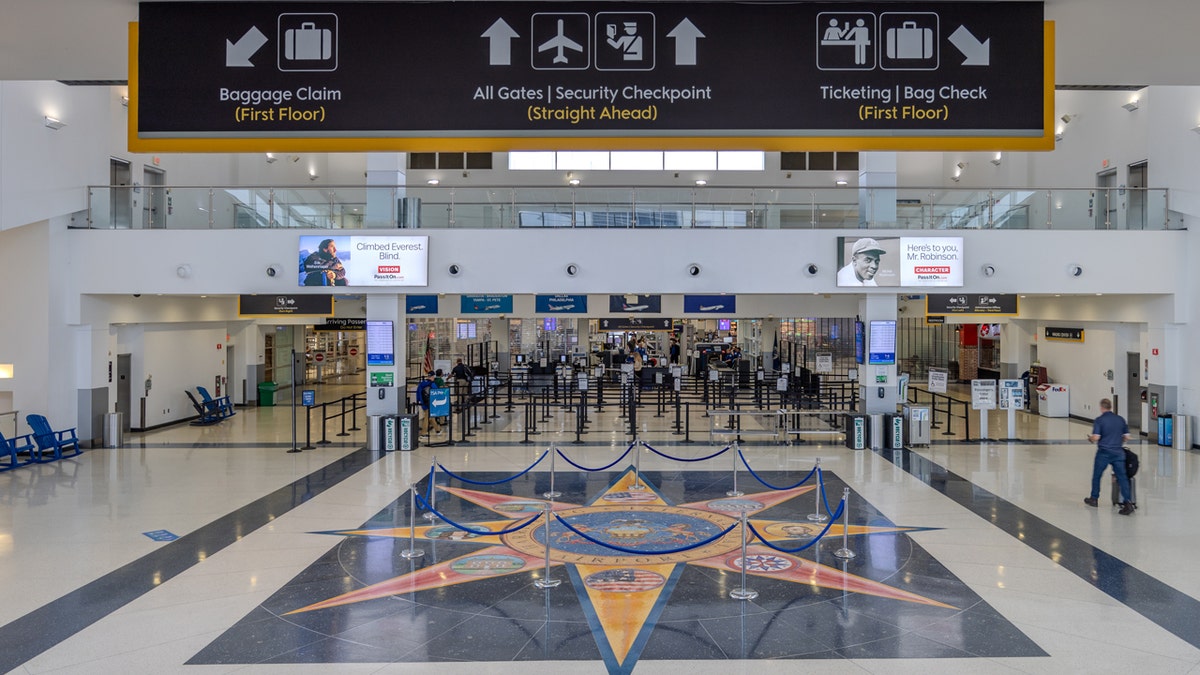
Cyber Attacks on Airport PA Systems Expose Critical Security Vulnerabilities
Recent cyber attacks targeted the public address (PA) systems at airports in Harrisburg, Pennsylvania, and Kelowna, British Columbia, allowing hackers to broadcast unauthorized political messages supporting the Free Palestine movement and criticizing Israeli policies and former US President Trump. These breaches, attributed to Turkish cybercriminals with alleged ties to Hamas, exposed serious vulnerabilities in airport cybersecurity. Airport authorities responded swiftly to secure the systems and begin investigations. The incidents highlight the growing threat of politically motivated cyber attacks on critical infrastructure and underscore the urgent need for strengthened digital security measures to protect public spaces from such disruptions.
Summary
Recent Cyber Attacks on Airport PA Systems Highlight Security Vulnerabilities
In recent incidents, airports in Harrisburg, Pennsylvania, and Kelowna, British Columbia, fell victim to cyber attacks where hackers accessed the public address (PA) systems to broadcast unauthorized political messages. These breaches highlight significant vulnerabilities in airport cybersecurity, focusing on the dissemination of pro-Palestine messages and anti-Israel/Trump sentiments, believed to be orchestrated by hackers supporting Hamas.
Key Takeaways: - Airports in the US and Canada were targeted in cybersecurity breaches involving PA system hacks. - The messages broadcasted supported the Free Palestine cause, critiquing Israeli policies and mentioning Trump. - The incidents are attributed to Turkish cybercriminals with alleged ties to Hamas. - Airport security swiftly responded to ensure passenger safety and initiate investigations. - The events underscore the need for enhanced cybersecurity measures in public infrastructure.
---
The Nature of the Airport PA System Hack
Cybersecurity Breach Details
The cyber attacks in Harrisburg, Pennsylvania, and Kelowna, British Columbia, involved unauthorized access to the airports' public announcement systems. These systems, critical for disseminating important information to passengers, were exploited to broadcast messages unrelated to airport operations. The content of these messages was political, advocating for Palestinian rights and expressing opposition to Israeli policies and former US President Donald Trump. This type of intrusion, known as an audio intrusion, not only disrupts normal airport functions but also raises concerns about the potential for broader cybersecurity threats.
Attribution to Turkish Cybercriminals
The attacks have been linked to Turkish cybercriminals, suggesting a possible state-sponsored or politically motivated hacking operation. The involvement of hackers with ties to Hamas, a Palestinian militant organization, adds a layer of complexity, blending cybercrime with international political activism. This connection points towards the use of cyber tactics in the broader context of the Israel-Palestine conflict, aiming to influence public opinion through unconventional means.
Political Messaging via Cyber Attacks
The Message Content
The messages broadcasted were clear in their political stance, supporting the Free Palestine movement and criticizing Israeli actions. This form of political hack serves as digital protest, where the hackers aim to reach a captive audience in a high-profile public setting. The inclusion of references to Trump suggests an attempt to link domestic US politics with international conflicts, leveraging the global stage provided by airports.
Impact on Public Perception
Broadcasting such messages in public spaces like airports can significantly impact public perception, especially when the audience is diverse and international. It's a strategic move by the hackers to exploit the captive audience of travelers, potentially swaying opinions or sparking discussions on the Israel-Palestine conflict. This method of political messaging via cyber attacks is becoming a noted trend, where the digital realm intersects with physical public spaces to amplify political narratives.
Airport Security Response and Protocol
Immediate Actions Taken
Upon detection of the security incident, airport security in both locations responded promptly. Measures were taken to secure the PA systems, prevent further intrusions, and ensure that passenger safety was not compromised. Investigations were launched to trace the source of the hacks, involving local law enforcement and cybersecurity experts. This response highlights the effectiveness of existing emergency protocols in managing such unexpected breaches.
Future Implications for Airport Security
These incidents have prompted a review of current security measures, particularly in the realm of digital infrastructure. Airports are now likely to increase investment in cybersecurity, focusing on protecting critical communication systems from future hacks. This could involve advanced encryption, regular security audits, and possibly integrating AI for real-time threat detection. The events serve as a wake-up call, emphasizing that airport security isn't just about physical threats but also encompasses the digital landscape where vulnerabilities can lead to significant disruptions.
Broader Context of Cybersecurity in Airports
The Growing Threat Landscape
Airports, with their complex digital ecosystems, are increasingly targets for cyber attacks due to their strategic importance in global travel and commerce. The integration of digital systems for everything from flight operations to PA announcements increases the attack surface for cybercriminals. This incident with the PA systems is a stark reminder of the need for robust cybersecurity frameworks to safeguard not just data, but the operational integrity of public infrastructure.
Political Messaging and Cyber Activism
The use of cyber attacks for political messaging, as seen in these incidents, is a growing trend. Hackers exploit digital vulnerabilities to broadcast their messages, often aiming to provoke or influence public opinion on sensitive international issues. This form of cyber activism, or digital protest, challenges traditional security paradigms, requiring airports and other public facilities to adapt to new forms of threats.
Conclusion
The recent cyber attacks on airport PA systems in Harrisburg and Kelowna serve as critical case studies in the evolving landscape of cybersecurity threats to public infrastructure. By broadcasting political messages, the hackers not only disrupted airport operations but also engaged in a form of information warfare, highlighting the intersection of cybercrime with political activism. Moving forward, these incidents will likely lead to enhanced security protocols, ensuring that airports remain secure environments, both physically and digitally, against such sophisticated threats.

Frequently Asked Questions
Q: airport public address system hack incidents
A: There have been several reported incidents where airport public address (PA) systems were hacked to broadcast unauthorized or prank messages. Hackers typically exploit vulnerabilities in the network or physical access points to override official announcements. Such breaches can cause confusion, panic, or delays in airport operations, prompting authorities to increase security measures around communication systems. While these incidents are relatively rare, they highlight the importance of securing critical infrastructure against cyber threats.
Q: who hacked Harrisburg airport PA system
A: In November 2022, the public address system at Harrisburg International Airport in Pennsylvania was hacked by an unknown individual or group. They used the system to play a parody of the classic video game theme 'Mario Kart' and various other audio clips. Authorities investigated the breach, but as of now, the identity of the hacker has not been publicly disclosed.
Q: Free Palestine message at airports
A: Displaying 'Free Palestine' messages at airports is a form of political expression aimed at raising awareness about the Israeli-Palestinian conflict and calling for Palestinian rights. However, airport authorities often regulate such messages due to security policies and the neutral nature of airport environments. Activists may use signs, flyers, or digital displays, but these can be subject to removal or restrictions depending on local laws and airport regulations. It's important for demonstrators to follow rules to avoid legal issues while expressing their views.
Q: airport security breaches by hackers
A: Airport security breaches by hackers involve unauthorized access to digital systems that manage airport operations, such as baggage handling, flight scheduling, or security checkpoints. Hackers may exploit vulnerabilities in software to disrupt services or steal sensitive information, potentially compromising passenger safety and privacy. These breaches highlight the importance of robust cybersecurity measures alongside physical security at airports to prevent attacks and ensure safe air travel.
Q: Hamas linked cyber attacks on airports
A: There have been reports suggesting that Hamas, the Palestinian militant group, has been linked to cyber attacks targeting airports. These attacks typically aim to disrupt airport operations, compromise security systems, or gather intelligence. However, detailed confirmation and attribution in such cyber incidents are often challenging due to the covert nature of cyber warfare. Airports, being critical infrastructure, remain high-profile targets for various state and non-state actors seeking to create disruption or political leverage.
Key Entities
Harrisburg International Airport: Harrisburg International Airport is a regional airport located in Middletown, Pennsylvania, serving the Harrisburg metropolitan area. It functions as a transportation hub connecting central Pennsylvania to major domestic and limited international destinations.
Kelowna Airport: Kelowna Airport is an international airport located in British Columbia, Canada, serving the Okanagan Valley. It handles both passenger and cargo flights, supporting regional tourism and economic activities.
Hamas: Hamas is a Palestinian Islamist political and militant organization that governs the Gaza Strip. It is known for its conflict with Israel and has been designated as a terrorist organization by several countries.
Donald Trump: Donald Trump served as the 45th President of the United States from 2017 to 2021. His administration was marked by significant policy shifts, including a strong stance on Middle East affairs and support for Israel.
Israel: Israel is a Middle Eastern country established in 1948, recognized for its advanced technology sector and complex geopolitical environment. It has been involved in longstanding conflicts with neighboring entities, including Hamas in Gaza.
External articles
- Apparent hackers take over PA systems at 4 North ...
- Airport officials say cyberattack at HIA 'wasn't a threat'
- Pro-Hamas hackers hijack airport loudspeakers across ...
Related Articles
- Luxury Hotel Openings to Watch in 2025: Exclusive Resorts and Historic Charm
- Kristen Bell Stars in Citi Strata Elite Card Ad Campaign Highlighting Exceptional Travel Rewards
- Integrating Nature, Technology, and Wellness in Modern Office Design
YouTube Video
Title: Hackers Hijack Airport PA Systems, Blast Pro-Hamas Messages#shorts #short #usanews #donaldtrump
URL: https://www.youtube.com/shorts/PAlxXMe33-I
Travel